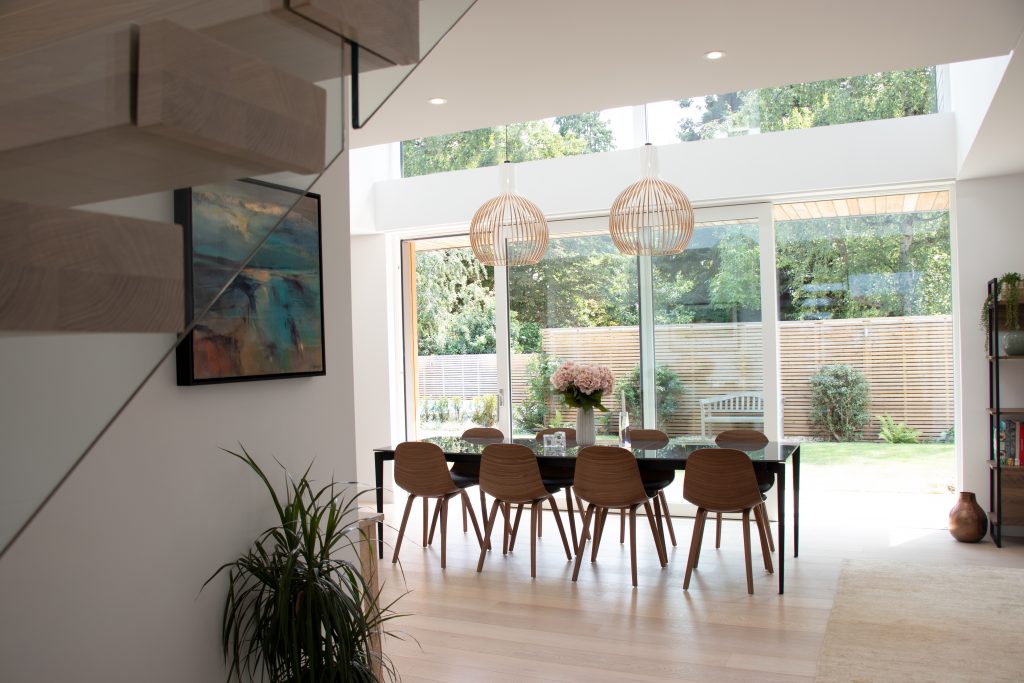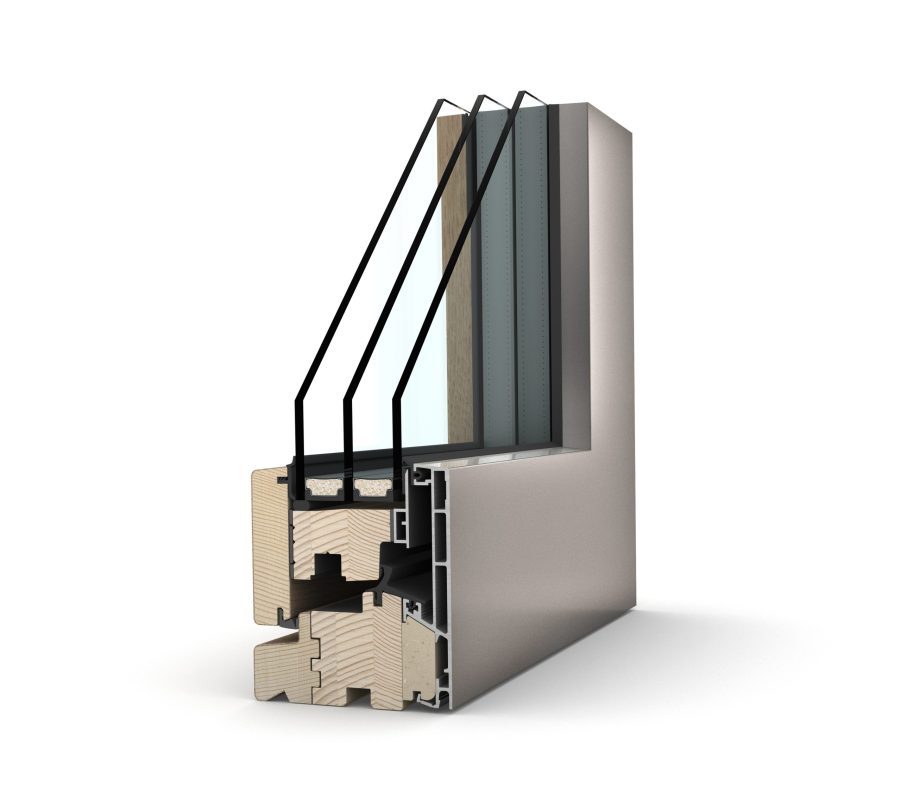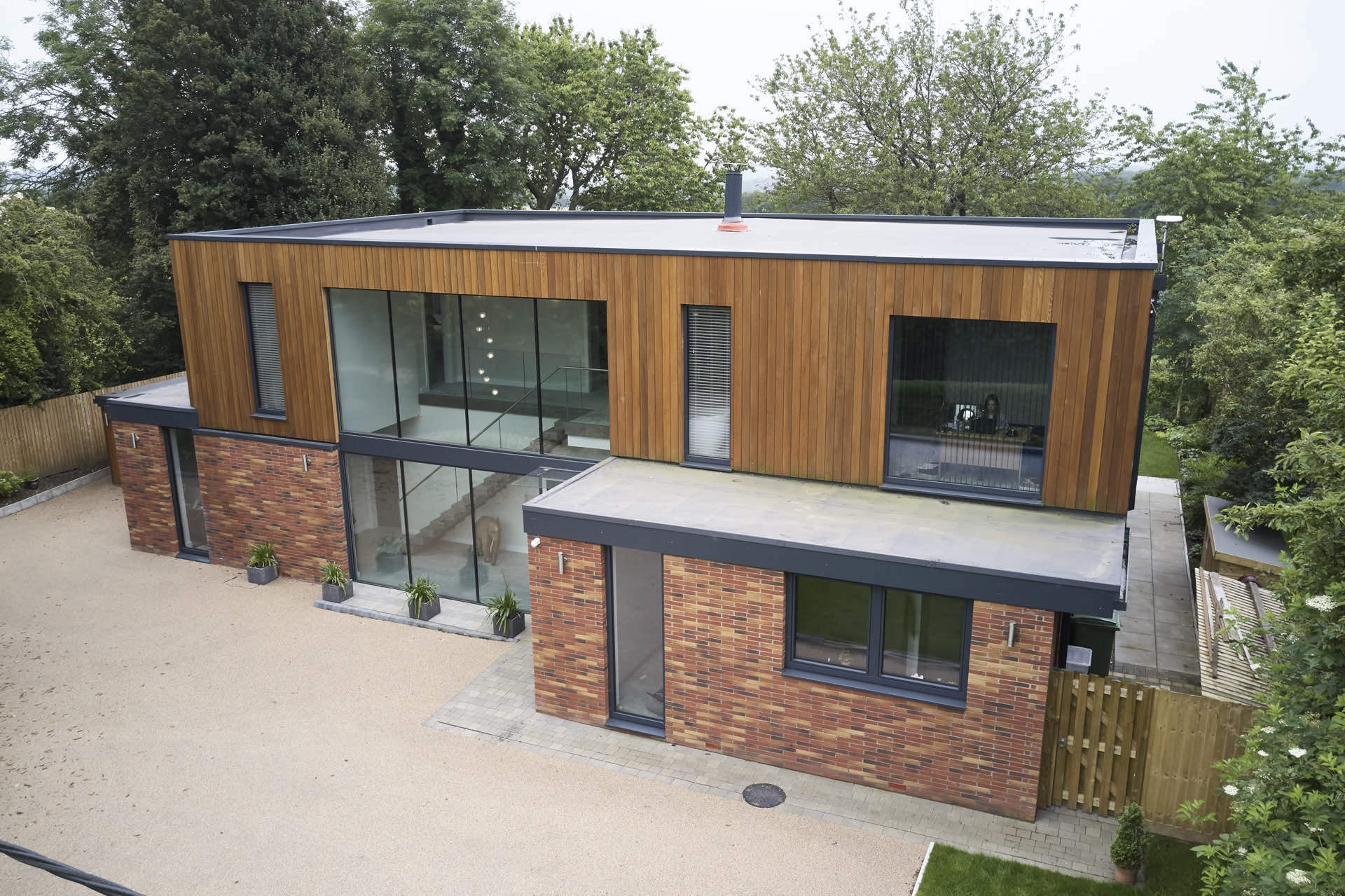When considering windows and doors for a self-build, or home improvement to enhance energy efficiency, reduce noise, and increase comfort, two question frequently comes up for UK homeowners: ‘What is the difference between triple glazing vs double glazing’, and ‘Is triple glazing worth the investment?’ In this blog we explore the advantages of triple glazing, comparing it to double glazing, and helping you decide if it’s the right choice for your property.
What is Triple Glazing?
While double glazing has been the UK standard for years, triple glazing is considered an upgrade for some properties. With building regulations becoming more stringent, triple glazing is the only solution to future-proof your home.
However, when considering triple glazed windows, be aware that not all triple glazing is the same! So spotting the difference between a dedicated quality triple-glazed window compared to a double-glazed window with an extra glass pane squeezed into a double-glazed frame, is key to choosing the right triple glazed window for your project from your local triple glazing supplier.

Triple glazing refers to windows with three layers of glass, separated by spacers and filled with insulating gas, such as argon or krypton. This design provides an extra layer of insulation compared to double glazing, which only has two panes. While triple glazing has been popular in colder regions like Scandinavia, Austria, Switzerland and Germany for the past 40 years, and has become the standard, it’s gaining traction in the UK as homeowners seek energy-efficient, quieter, and more secure homes.
Simply adding a third glass pane to a window is not enough. If you think about it, glass can be heavy and by adding an extra pane, you increase the weight considerably. Therefore, hardware, frame and general construction of a triple glazed window has to be stronger and of a much higher standard to ensure longevity and usability. Who wants to keep calling a service engineer to adjust a window because it has dropped under the weight, or stops working altogether?
But it’s not just about the three panes of glass. The width of spacers and gap between the panes, the type of insulating gas, and most importantly, the frame construction and insulation, all contribute to achieving a high performance window that will delivery outstanding energy-efficiency, noise reduction, as well as enhanced security. Not forgetting a long lifespan and low maintenance. All these factors are important when considering triple glazing vs double glazing.
Internorm has taken it a step further with its alu-clad timber and uPVC composite windows. By combining weather-resistant, low maintenance aluminium on the outside, and either classic uPVC or warm, natural timber on the insider, as in this image of the new, slim Internorm HF 520 timber-aluminium window, these windows are both high performing and stylish.

What Are the Benefits of Triple Glazing?
- Thermal Performance (U-value)/Enhanced Energy Efficiency: U-value measures how well a window prevents heat loss. Double glazing typically has a U-value between 1.2 and 1.6 W/(m²K), whereas triple glazing can achieve U-values below 0.8 W/(m²K), which meets Passivhaus standard. Lower U-values mean better insulation, making triple glazing more efficient at keeping your home warm in winter. Triple glazing offers improved energy efficiency compared to double glazing. The additional pane of glass and extra insulating layer help retain heat, reducing heat loss and potentially lowering energy bills by over 50%, depending on the quality of the window. This can be particularly beneficial in colder regions of the UK, where winter heating costs can be significant.
- Reduced Noise Pollution: One of the top reasons homeowners in busy urban areas choose triple glazing is for noise reduction. If you live near a busy road, train line, or airport, the extra pane in triple-glazed windows can help block out external noise, making your home quieter and more peaceful. It is well-documented that constant exposure to noise pollution does not just affect your sleep but also your general wellbeing. So cutting the noise is important to your health.
- Improved Home Security: With three layers of glass, triple glazing adds a layer of security. It makes windows more difficult to break, acting as a deterrent to potential intruders. With Internorm’s unique I-tec Glazing, where the glass pane is securely bonded to the frame all the way round, and I-tec Secure locking mechanism, this is further enhanced.
- Reduced Condensation: Triple glazing can also reduce condensation on windows, particularly in colder rooms. By keeping the glass temperature closer to the room temperature, triple glazing helps prevent the build-up of moisture on your windows, which can lead to mould and damp issues over time. This can have a detrimental affect on your health.
- Add value to your home: By installing triple glazing to your selfbuild or retrofit project, you can increase the value of your home. So not only is it a sound investment in terms of energy efficiency and saving on your heating bills, you also gain on the re-sale value of your property.
What is the Cost of Triple Glazing vs Double Glazing?
Are you just interested in standard cheap double-glazed windows, that will give you an average performance and not make much difference to the energy-efficiency of your home? Or do you want to invest in quality triple glazed windows that you can not only enjoy for 30+ years, but are also low maintenance? Consider the cost of either having to replace cheap windows every 10 years, or having to get your timber windows re-painted every three years. It’s not just the cost but also the inconvenience! Ultimately it comes down to how long you want to live in your home for, and what your budget is.
Triple glazing is generally more expensive than double glazing. Depending on the products, it can be over 20% more. While this means a higher upfront investment, it can also mean long-term savings on energy bills, particularly in homes with high heating costs. It’s a no-brainer for low energy self-builds. With careful planning, it is even possible to build a sustainable home on a budget.
However, when it comes to renovations, don’t just look at replacing the windows to improve the energy efficiency of your home. Always consider the whole building envelope, as is explained in this Passivhaus EnerPHit deep retrofit case study. Yes, heat escapes through poorly performing single and double-glazed windows, but it also escapes through poorly insulated walls and roofs. So if you are thinking about investing in quality triple glazing, always do so in combination with a whole house retrofit to maximise the benefits of your investment.

Why choose Internorm Triple Glazed Windows?
Internorm windows and doors are triple glazed as standard and include many enhanced features to improve energy efficiency, acoustic performance, as well as security. Internorm introduced high performance triple glazed windows and doors as early as 1979, and has improved the construction and component materials ever since. By only using quality materials and components, as well as adding innovative and unique features, Internorm windows are seen as one of the best windows on the market. This means that every Internorm timber-aluminium or uPVC-aluminium composite windows deliver outstanding performance and last for 30+ years.
So where do you start? Simple. Internorm is a leading triple glazing supplier and operates via an approved Distribution Partner Network. Find your nearest Internorm partners showroom on our website, make an appointment, and get expert advice on the best product for your project.
